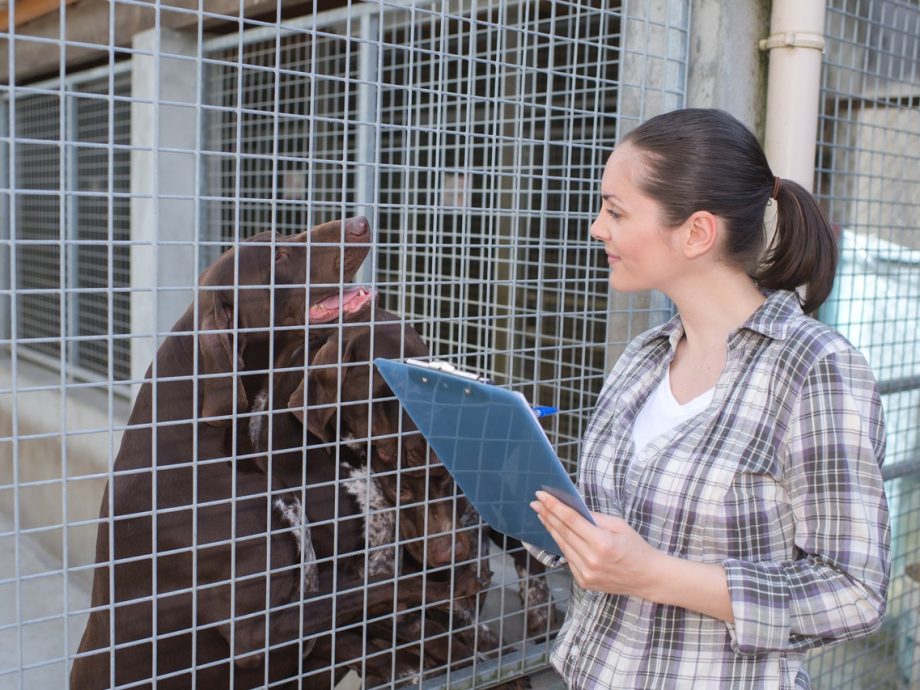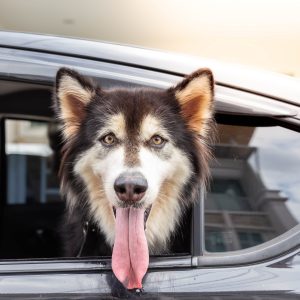Background checks
As someone who has worked in kennels and as a pet sitter, these are my observations. When you trust an establishment or individual with your pet, you expect them to be in a happy and healthy environment. Most people who choose to work in this field have a real passion for it and focus on improving care and animal welfare. I treat every animal I work with as my own, making them feel safe and loved just like at home. This is achievable in both kennels and pet sitting if you choose the right one. Background checks on either facility should be carried out, including insurance, licensing, reviews and experience.
Boarding kennels and catteries explained
Boarding kennels will keep each dog in a safe, individual kennel where they have twenty-four-hour access to shelter with a safe bed area, food, and water, all separate to other dogs. Dogs from the same families are allowed to be kennelled and walked together. Some kennels will walk dogs together if they think they will get along and have tested this in a safe place, others do not allow this; only pets from the same families can mingle.
Your dog should receive at least one walk a day, with staff who are physically able to do so and know how to react to dangers and incidents. Kennels are cleaned more than once every day: scooping the poop, mopping up, changing the water and changing the bedding. I recommend providing an old item of yours, which has your scent on it. This could be an old t-shirt, old blanket, or towel, or even a pair of socks (if they won’t chew them!) that will provide comfort to your dog. Sometimes dogs do get messy, but the staff will stay on top of this and keep the kennel area as clean as possible.
Grooming is carried out as required. For example, a lot of bulldogs have weeping eyes, which get cleaned daily with the correct equipment. Brushing dogs with thicker and longer coats is also important to prevent matting occurring during their stay. Some kennels have on-site groomers, others will offer bathing for your dog on departure. During winter seasons, heat lamps are available (this may cost a little extra), and plenty of cosy blankets are provided. In the summer, due to the kennel layout, your dog should always have access to shaded areas, of course with refreshing cold water. Kennels have an indoor bed area and an outdoor run for toileting and hydrating.
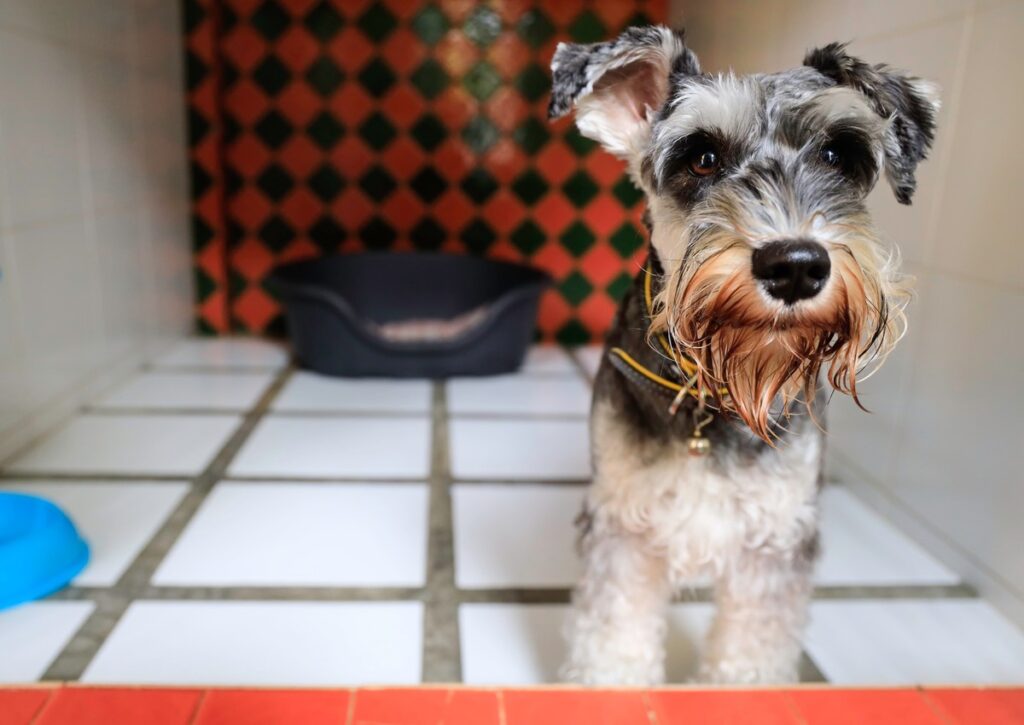
Special needs
If your dog is on a specific diet or has any health issues, providing your own, regular, food is the best option. Some kennels provide their own wet and dry food but will more than likely be different to what your dog usually eats. They will also accommodate raw fed diets. It is particularly important to remember any medication that your dog may be on. I suggest writing key information alongside step-by-step instructions for the staff, on how to prepare and administrate the medication. This will be discussed when you book your dog in, but extra precaution always provides peace at mind for everyone involved.
Boarding your cat
Within boarding kennel facilities, cats are housed separately from dogs to avoid any stress. Again, each cat is kept separate from others unless they are from the same household. There is always fresh water available, a cosy bed, litter tray and toys to play with. I recommend brining your own scratching post. Staff should be engaging and playing with the cats regularly throughout the day to ensure they are as happy as possible when out of their usual environment.
Catteries (sometimes called cat hotels) are cat boarding facilities, and usually contain a number of separate rooms or enclosures. Sometimes there is also a communal area. Most cats struggle with catteries, unless they are used to staying there from a young age. As cats are highly territorial, leaving them in a cattery can cause stress. Staying in their home environment with a pet sitter might be the better option for shorter trips. If away for longer, there is more time for the cat to get used to the unfamiliar environment of a cattery.
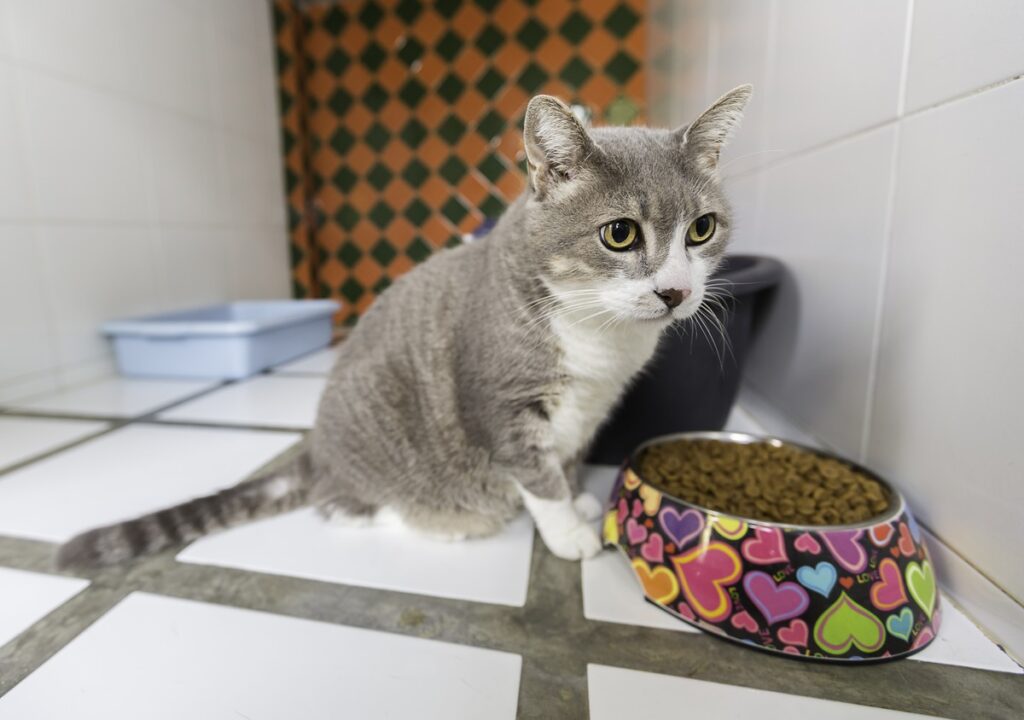
Prices
Facilities in different areas will range in prices, each one having their own schemes and layouts. You will need to book your pet in advance for their stay, and you should ensure your pet’s vaccinations and microchip details are up to date. You will have to sign consent, allowing the staff to take your pet to your veterinary practice if needs be. Some kennels will also take smaller domestic pets, but this is variable.
Pet sitting tips you need to know
Pet sitters are usually dog walkers and definitely should be animal lovers. Home boarding means your dog will stay at their house, whereas pet sitting means the individual will be at your house. Both require insurance and a Disclosure and Barring Service (DBS) check, which checks the criminal record of the individual. Both provide the same service but in different settings. Not everybody is comfortable with a (sort of) stranger living in their house for a few days or so, whereas other people feel relief that their dog is safe and comfortable in their own home. Whatever works best for you – it is an easier decision once you have a relationship with your pet sitter.
Even if your dog or cat is super happy and friendly, it can be a strange experience to have its owners leave, a new person come in and expect a bond. Meeting on multiple occasions first is the best way forward. If they offer walking services, take them up on this. Especially so if your dog is nervous, has separation anxiety or does not take well to new people, a bond is necessary. This way, as a pet owner, you have peace of mind that your dog can relax whilst you are away.
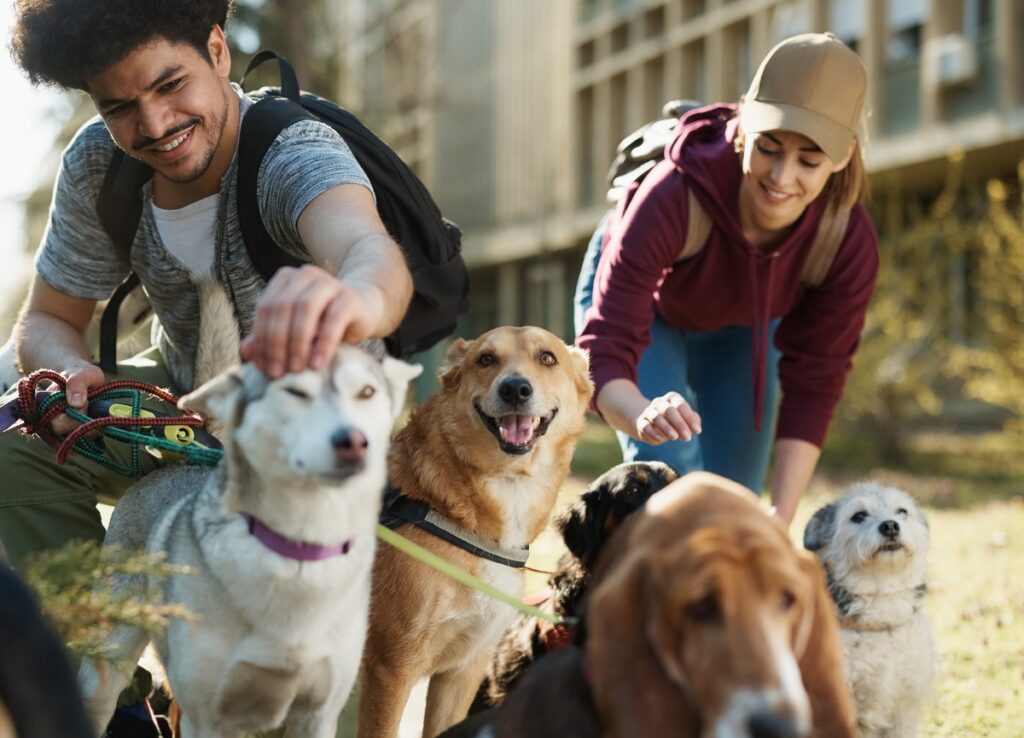
Routine
Pet sitters will try to stick to your regular routine as much as they can, with feeding, toileting, walks and bedtime. Your dog may be left alone for small periods of the day whilst they walk other dogs or have errands to run etc. – but it really is a dedicated role to your dog. They may even get to spend time with other dogs and visit new places. Again, prices vary within different areas and the specific services that each pet sitter provides. Have a meet and greet with the individual and get to know them. Also think about whether you are happy for someone to stay in your home whilst you are away.
Essentially, as a pet owner you know what works best for your pet and their needs. Weigh up your options, take visits to different kennels and ask for a tour if possible. Talk to people on their recommendations and past experiences and try not to worry about your fur-baby too much! Get in touch for further information and advice: hello@domain4pets.com

